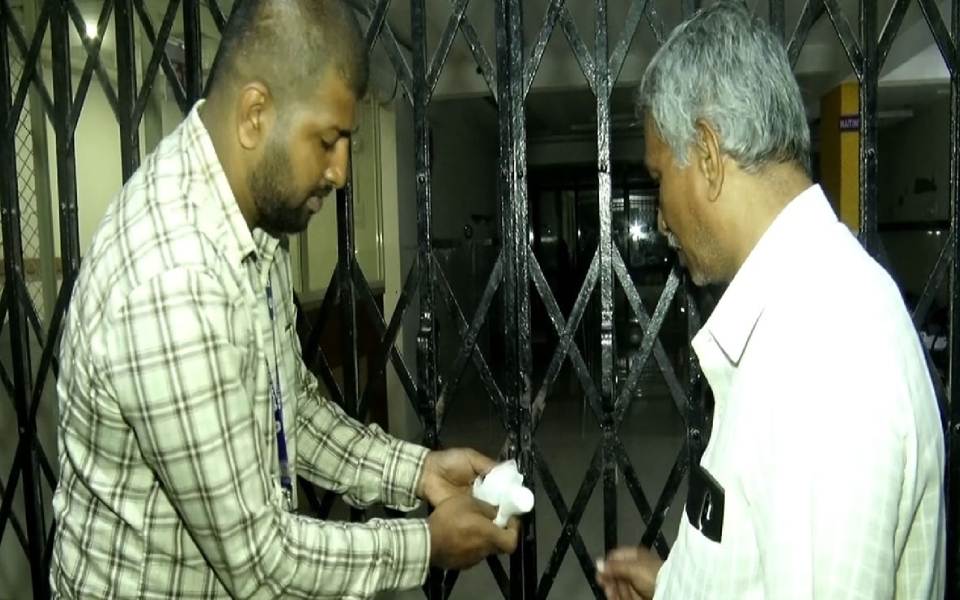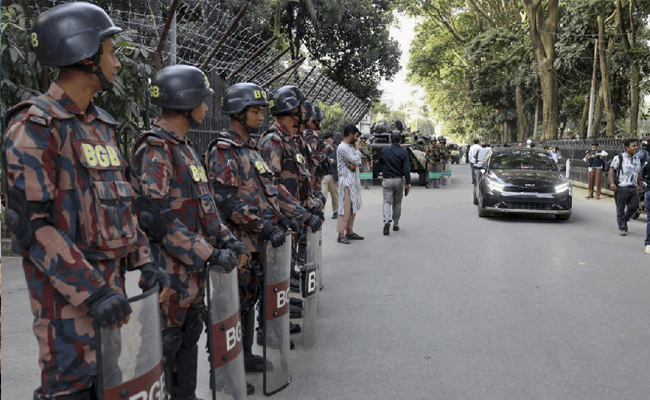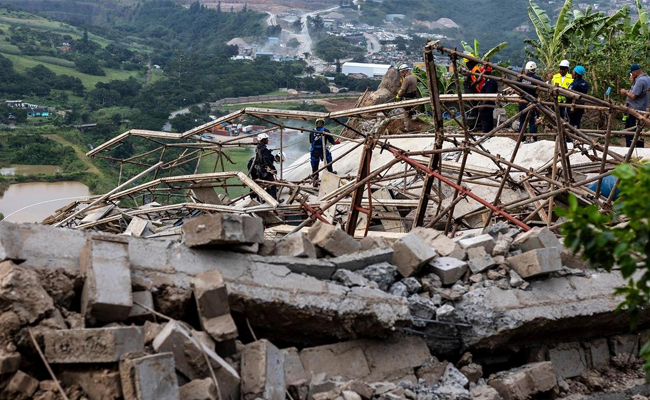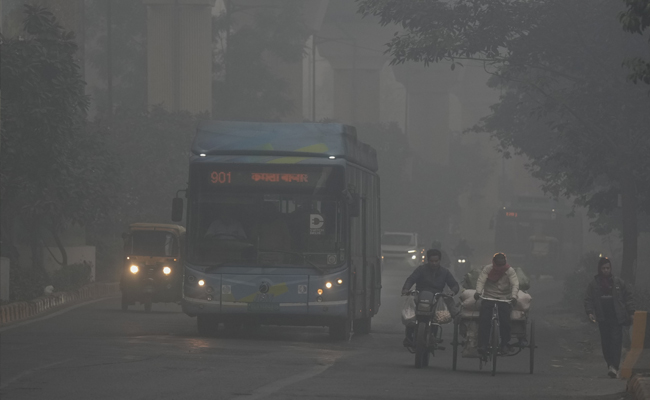Bengaluru: A private hospital in Bengaluru Rural district was sealed and four of its employees were detained after a female foetus was found inside a dustbin of its premises, police said on Thursday.
Following the incident in the hospital located at Thirumalashettyhalli in Hoskote taluk, a case has been registered by the police against the doctor who is also its owner. Those detained included females nurses who have also been named in the FIR, they said.
A team of health officials visited the hospital as part of their routine inspection on Wednesday and found the female foetus to their utter shock, a senior police officer said.
During the inspection, they also found a woman lying in the operation theatre and suspected that the foetus thrown in the dustbin belonged to her.
However, the officer said, ''The enquiry is on and we are yet to verify if the disposed foetus was hers or someone else's.''
ALSO READ: K'taka govt issues circular to seal unauthorised medical facilities, clinics run by fake doctors
The health officials alerted police and sealed the hospital, he said. State Health Commissioner Randeep D said it is the first case booked for female foeticide through illegal abortion in Karnataka.
''The health officials team followed leads and undertook an inspection where disposed foetus evidence was found along with no proper records maintained of scanning. The hospital has been sealed,'' he told PTI.
''Based on the statement and complaint received by the health officials concerned, we have registered a case under the Prohibition of Sex Selection Act, Medical Termination of Pregnancy Act and sections 312 (causing miscarriage), 314 (death caused by act done with intent to cause miscarriage) and 315 (act done with intent to prevent child being born alive or to cause it to die after birth) of the Indian Penal Code against the owner and staff of the private hospital'', a senior police officer said.
The hospital owner has been absconding since the incident and teams have been formed to trace him, he added.
Earlier this month, the Karnataka Health department had asked district health officers to inspect and seal unauthorised medical facilities and those run by 'fake doctors' after police busted a sex determination and female foeticide racket in Karnataka.
Several arrests have been made in connection with the scandal uncovered in Bengaluru, Mandya and Mysuru districts.
The Karnataka Government has transferred investigation into such illegal activities to the Criminal Investigation Department of the State Police.
Let the Truth be known. If you read VB and like VB, please be a VB Supporter and Help us deliver the Truth to one and all.
Dhaka (PTI): The Election Commission (EC) has demanded extra security for its chief, other commissioners and officials as fresh unrest visibly gripped Bangladesh after gunmen shot an upcoming parliamentary polls candidate and frontline leader of last year's violent street movement dubbed 'July Uprising'.
"The EC has written to the Inspector General of Police (IGP) urging comprehensive security arrangements for the Chief Election Commissioner (CEC), Election Commissioners (ECs), senior officials of the Election Commission Secretariat," the state-run BSS news agency reported on late Saturday.
The EC simultaneously sought the extra security for its field-level offices ahead of the 13th national election, as two of them came under attack in southeastern Lakshmipur and southwestern Pirojpur by unidentified miscreants after the announcement of the schedule for the upcoming polls on Thursday.
The commission demanded an additional escort vehicle for the CEC, while one such police escort with a vehicle was currently in place for him. It asked for round-the-clock police escorts for the four commissioners and the senior secretary.
The letter said the enhanced security measures were "urgent and necessary," while EC officials said their 10 regional offices, 64 district election offices and 522 sub-district level offices would store important documents and election materials.
The EC on Thursday said the upcoming parliamentary election would be held on February 12 next year, while a day later, Sharif Osman Hadi was shot from a close range in the head, critically wounding him, as he initiated his election campaign from a constituency in the capital.
Critically ill former prime minister Khaleda Zia's Bangladesh Nationalist Party (BNP) simultaneously asked Muhammad Yunus' government to provide security for all candidates in the upcoming election after the attack on Hadi, who leads a radical right-wing cultural group called Inquiab Mancha.
"We demand that the real culprit be identified immediately and brought under the law, and we call upon this government to ensure the security of all candidates without delay," BNP Secretary General Mirza Fakhrul Islam Alamgir said.
Hadi was also a frontline leader of last year's student-led violent uprising that toppled then-prime minister Sheikh Hasina’s Awami League government on August 5, 2024.
His Inquilab Mancha was also at the forefront of a campaign to disband the Awami League, which the interim government complied with in May this year, disqualifying the party from contesting the polls.
The government on Saturday ordered a nationwide security clampdown called 'Operation Devil Hunt 2' amid escalated fears over the law and order situation and promised to issue firearms licenses for election candidates for their own security.
Home adviser (retd) Lieutenant General Jahangir Alam Chowdhury said the government had taken steps to ensure special security for the "frontline fighters" of the July Uprising and promised to issue firearms licenses for the election candidates.
He emphasised that the second phase of the 'Devil Hunt' was aimed at helping ensure public safety and combat the growing threat of illegal arms.
The operation was initially launched in February this year following protests over an attack on the private house of a former minister of the ousted government in the northern suburb of the capital, when it targeted alleged "henchmen" and supporters of the now disbanded Awami League.





